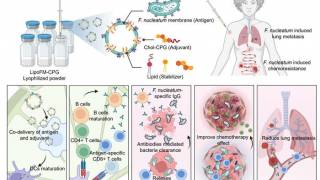After 23 Years, New Bladder Cancer Treatment Seeks FDA Approval

An innovative treatment combination, including a 100-year-old vaccine, may soon become available to certain bladder cancer patients in the USA.
Announced on May 23, 2022, ImmunityBio, Inc. confirmed it had submitted a Biologics License Application (BLA) to the U.S. FDA for N-803 (Anktiva), a first-in-class IL-15 superagonist, plus Bacillus Calmette-Guérin (BCG) for the treatment of BCG-unresponsive non-muscle invasive bladder cancer (NMIBC) carcinoma in situ (CIS) with or without Ta or T1 disease.
If approved by the FDA, ImmunityBio, Inc.’s N-803 plus BCG would be the first new immunotherapy for bladder cancer indication in 23 years that can be delivered directly to the bladder (intravesically) to induce natural killer cells and T cells, providing a new treatment option for patients with this form of bladder cancer.
The BLA is supported by the results of ImmunityBio’s studies in bladder cancer, including the pivotal QUILT 3032 study, where 71% of patients who had failed previous therapies showed an over 50% increase in both response and median duration compared to the FDA-approved alternatives Valrubicin and Pembrolizumab, a systemic checkpoint inhibitor therapy for this indication.
This BLA has strong approval prospects since the FDA previously granted N-803 Breakthrough Therapy and Fast Track designations when used in combination with BCG to treat BCG-unresponsive NMIBC CIS.
Trained immunity is a recently discovered immune system response triggered by BCG. And Natural Killer (NK) and T cells are activated by BCG, resulting in bladder cancer cell death.
When an appropriate secondary stimulus is administered along with BCG, that trained immune response is enhanced to induce immune memory resulting in a prolonged duration of immunological response.
“This immunotherapy represents a potential new option for bladder cancer patients who fail to respond to BCG, the current standard of care. The study results of N-803 plus BCG indicate that this combination provides a durable response with a reduced need for a cystectomy,” said Patrick Soon-Shiong, M.D., Executive Chairman, and Global Chief Scientific and Medical Officer at ImmunityBio, in a press release issued on May 23, 2022.
“We believe that the durable responses seen in this study provide further support for our hypothesis that by orchestrating natural killer cells, T cells, and memory T cells, long-term durable remissions can be achieved in patients suffering from cancer.”
“The results from the QUILT series of ongoing trials across multiple tumor types, including pancreatic, lung, and other solid tumors, could lead to a paradigm shift in cancer therapy that ImmunityBio is developing.”
“We are hopeful that this combination immunotherapy of BCG acting as a prime and N-803 as the boost to the immune system will not only provide a new path for these patients but also help us continue to broaden our understanding of how we might apply this novel mechanism of action to other difficult-to-treat diseases.”
The BLA submission for BCG-unresponsive NMIBC is based on data from 171 subjects from Phase I and 2 trials in bladder cancer and on 84 subjects treated in ImmunityBio’s Pivotal Phase 2/3 QUILT 3032 study of the combination of N-803 and BCG. The combination had a well-tolerated profile.
The full results of this study will be presented at an oral presentation at the 2022 American Society of Clinical Oncology (ASCO) Annual Meeting to be held June 3-7, 2022, in Chicago.
N-803 (Anktiva) is a novel IL-15 superagonist complex consisting of an IL-15 mutant (IL-15N72D) bound to an IL-15 receptor α/IgG1 Fc fusion protein. Its mechanism of action is direct specific stimulation of CD8+ T cells and NK cells through beta-gamma T-cell receptor binding (not alpha) while avoiding T-reg stimulation.
N-803 has improved pharmacokinetic properties, longer persistence in lymphoid tissues, and enhanced anti-tumor activity compared to native, non-complexed IL-15 in vivo.
There is an urgent, unmet need to treat NMIBC and avoid radical cystectomy (removal) of the bladder to control the disease. In the U.S., bladder cancer is the fourth most commonly-diagnosed solid malignancy in men and twelfth in women.
The American Cancer Society estimates 81,180 new cases and 17,100 deaths from bladder cancer in 2022.
PrecisionVaccinations publishes fact-checked research-based vaccine news.
Our Trust Standards: Medical Advisory Committee
























